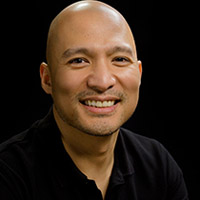Will New Corporate Tax Plans Hurt the U.S. in the End?

The winds of change are blowing when it comes to taxes and corporate taxes are no exception. President Trump and the House are both ready to lower the corporate tax rate in an effort to create a more business friendly environment for U.S. companies here in the states. Currently, the corporate tax system is a mess, which is why so many large companies keep so much of their earnings overseas, and that costs the U.S. billions in tax revenue.
The basic premise behind the current administration’s plan is to change the current model of tax on the return to capital into a model that taxes only extraordinary profits. The plan would do this by taxing corporate cash flows. The plan would make three major changes to accomplish this.
Number one, any investment outlays would not have to be depreciated over time, but instead they could be written off during the same year they were undertaken. The next major change would make interest payments to creditors non-tax-deductible. Lastly, in order to continue to promote our county’s competitiveness with the rest of the world, corporations would not have to include export receipts when they calculate their taxable income. On the other hand, they would not be allowed to deduct from their income payments to foreign affiliates and suppliers.
However, there are some who feel this plan could be very detrimental to our nation’s economy in the long run. The first problem is that the change could increase income inequality even more between the wealthy the rest of the country. The tax change could also increase uncertainty, put additional burdens on certain sectors and cause a volatile redistribution of income. The tax change could also hurt the global economy, according to some circles and the long-term of cost of making this tax change could end up causing large tax increases or spending reductions.
Of course, there are two sides to every story, so it remains to be seen what changes are made and how they will affect corporations and our nation’s financial well-being.
https://www.nytimes.com/2017/01/07/upshot/the-major-potential-impact-of-a-corporate-tax-overhaul.html?_r=0
https://www.washingtonpost.com/opinions/trump-and-ryan-are-right-to-tackle-corporate-taxes-but-their-approach-would-do-harm/2017/01/08/e7abd204-d429-11e6-9cb0-54ab630851e8_story.html?utm_term=.fd3e2b28a833
Saving Lives Through Glycoproteomics | Aldo Carrascoso
Saving Lives Through Glycoproteomics | Aldo Carrascoso We hope you found this interview about “Saving Lives Through Glycoproteomics | Aldo Carrascoso” enjoyable. To receive our free newsletter, contact us here. Subscribe our YouTube Channel for more updates. This transcript was generated by software and may not accurately reflect exactly what was said. Alan Olsen, is the Host of…
Tips to Start Planning Next Year’s Tax Return
Tips to Start Planning Next Year’s Tax Return Source: IRS.gov For most taxpayers, the tax deadline has passed. But planning for next year can start now. The IRS reminds taxpayers that being organized and planning ahead can save time and money in 2014. Here are six things you can do now to make next April…
Deducting Vehicle Expenses for Your Business
Deducting Vehicle Expenses for Your Business Business traveling costs add up fast. If you own a vehicle that is primarily for business use, there are tax deductions available to you. You can choose to deduct the standard mileage rate or actual expenses. If you are unsure of what option is best for you, consider the…
Common Tax Filing Mistakes for the Self Prepared Tax Return
Common Tax Filing Mistakes for the Self Prepared Tax Return If you are filing on your own, make sure to take note of the following 1. Choosing the wrong filing status. Taxpayers should confirm that the filing status (i.e., single, married filing jointly, married filing separately, head of household, qualifying widow(er) with dependent child) selected…




